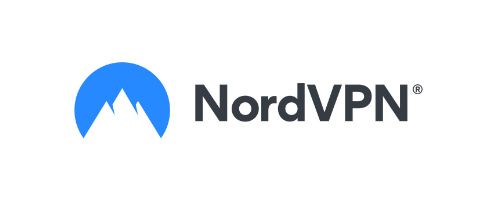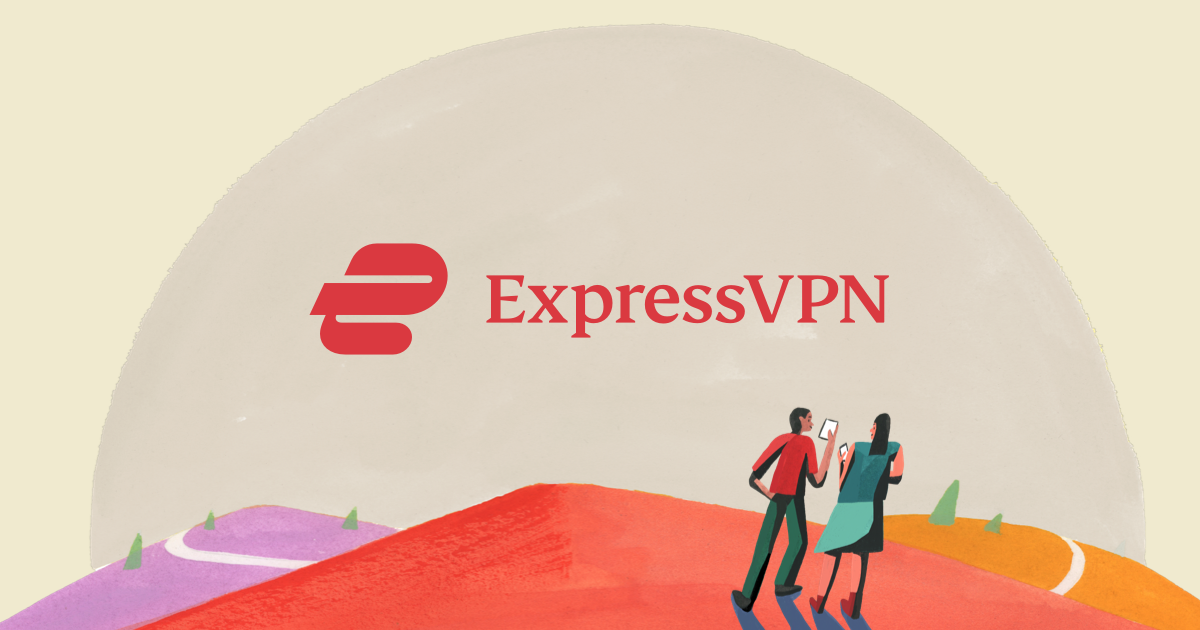In a world where data breaches are becoming more and more common, it’s important to take steps to protect your online privacy. One way to do this is to use a proxy server.
In this blog post, we’ll explore how to use proxy servers for online privacy. We’ll also discuss the benefits and drawbacks of using a proxy server.

NordVPN Special Deal
Get VPN protection from NordVPN, one of the most reliable VPN companies in the world, for just $3.99/month!
✅ Possibly, the best Double VPN implementation.
✅ Over 5000 servers in 60 countries.
✅ VPN split tunneling support.
What is a proxy server?
A proxy server is a server that acts as a middleman between you and the website you’re trying to access. When you use a proxy server, your IP address is hidden and replaced with the IP address of the proxy server. This makes it more difficult for websites to track your activity and increases your online privacy.
Proxy servers and network security
Proxy servers can be used to improve network security. When you use a proxy server, your traffic is routed through the proxy server before it reaches the website you’re trying to access. This gives the proxy server a chance to screen the traffic for malicious activity and block any malicious traffic before it reaches the website.
Proxy servers can also be used to bypass firewall restrictions. If you’re attempting to access a website that’s been blocked by a firewall, you can use a proxy server to bypass the firewall and access the website.

Special offer for our readers – 3 Months Free!
Get the best rated VPN service in the world with a special offer just for the readers of PrivacyTutor!
How does a Proxy protect computer privacy and data?
A proxy server acts as a middleman between your computer and the internet, encrypting your data and hiding your IP address.
When you use a proxy server, your data is encrypted as it passes through the server. This means that anyone who tries to intercept your data will not be able to read it. Additionally, since the proxy server hides your IP address, it makes it more difficult for websites to track you.
Drawbacks of using a proxy server
One potential drawback of using a proxy server is that it can slow down your internet connection. This is because your requests have to go through the proxy server before they can reach the website you’re trying to access.
Another reason why a proxy server can slow down your connection is that it may cache websites that you’ve already visited. This means that when you attempt to access a website, the proxy server will first check its cache to see if it has a copy of the site before it sends your request to the website itself.
Lastly, a proxy server can be less secure than connecting directly to a website. This is because your traffic is going through an intermediary server, which means that there’s an extra hop that potential attackers could target.
How does a Proxy protect computer privacy and data?
A proxy server acts as a middleman between your computer and the internet, encrypting your data and hiding your IP address. While a proxy server is not a VPN, it can still offer some protection for your data.
When you use a proxy server, your data is encrypted as it passes through the server. This means that anyone who tries to intercept your data will not be able to read it. Additionally, since the proxy server hides your IP address, it makes it more difficult for websites to track you.
While a proxy server does provide some privacy protections, it is important to remember that it is not a VPN. When you use a VPN, the application encrypts all the traffic between your computer and the internet, providing even more protection for your data.
Recommended VPNs



How does a proxy server work?
A proxy is a server that makes requests on your behalf. It forwards the data to you and can modify the data, such as encrypting it or blocking access to certain web pages.
When you use a proxy, your computer first connects to the proxy server. Then, the proxy server connects to the website or other online resources that you want to access. The proxy server then sends the data back to you.
Why should I use proxy servers?
Privacy is one of the main reasons why people use proxy servers. When you connect to the Internet through a proxy server, your IP address is hidden from websites and other online services. This makes it more difficult for others to track your online activities or identify you based on your IP address.
Security is another key benefit of using a proxy server. By routing your traffic through a proxy server, you can add an extra layer of protection between your computer and potential threats on the Internet.
Proxy Server vs. VPN
This all sounds very similar to what a VPN does. Let’s see what the differences are. Both a VPN and a proxy help you to conceal your real IP address by routing your traffic through another server. However, there are some key differences:
A VPN encrypts all of your traffic, while a proxy only encrypts some of it. This often allows bypassing restrictions such as firewalls or content filtering systems placed on the network by an ISP, company, school, etc…
Similarly, a VPN can allow you to access region-locked content on streaming services like Netflix.
Ideally, if you are concerned about your online privacy, I would suggest using a VPN. However, if a VPN is not an option, a proxy would be a decent alternative.

Special VPN Deal
Get VPN protection from NordVPN, one of the most reliable VPN companies in the world, for just $3.99/month!
Types of proxy servers
Now that we know what a proxy server is, let’s look at the different types of proxy servers that are available.
Data Center Proxy
A data center proxy is a type of proxy server that is hosted in a data center, and they are frequently very fast because they have many resources available to them. However, data center proxies can be expensive because you have to pay for the resources that they use.
Residential Proxy
A residential proxy is a proxy server that is hosted on a residential IP address that is assigned to a home user. While they are not as fast as the data center proxies, they are often very reliable because they are not shared with as many people as data center proxies.
Distorting Proxy
A distorting proxy is a type of proxy server that modifies or “distorts” the user’s IP address. This makes it appear as if the user is coming from a different location than they are. Distorting proxy servers are regularly used to bypass geographical restrictions or web filters.
Reverse Proxy
A reverse proxy typically sits behind the firewall in a private network and directs client requests to the appropriate backend server. A reverse proxy is used to route incoming traffic from the Internet to a server on the private network, typically to access internal resources such as web servers or application servers.
There are a few disadvantages to using a reverse proxy server.
First, reverse proxies can introduce latency into the network, as requests have to be routed through the proxy server before they reach the intended destination.
Second, reverse proxies can add another point of failure to the network, as the proxy server itself can go down or become overloaded.
Finally, reverse proxies can be used to hide the identity of the real server, which can be useful for security purposes but can also be used for malicious purposes such as DoS attacks.

Forward Proxy
A forward proxy server is a type of proxy server that sits between an isolated private network and the Internet. It is used to pass requests from the private network to the Internet through a firewall. The main disadvantage of using a forward proxy server is that it can be slow and unreliable. Additionally, it can be a security risk if not properly configured.
Rotating Proxy
A rotating proxy is a type of proxy server that assigns a new IP address for every connection. This is done to prevent IP blocks and to provide a higher level of anonymity for the user. Rotating proxies are mostly used for web scraping and for other automated tasks that require a high level of anonymity.
There are some disadvantages to using a rotating proxy. First, it can be more expensive than a static proxy. Second, it can be more difficult to configure, since you need to cycle through a list of IP addresses. Finally, it can be slower than a static proxy, since it takes time to connect to a new IP address.
Anonymous Proxy
An anonymous proxy is a server that routes internet traffic on behalf of its users, without revealing the user’s IP addresses to the sites they visit. Anonymous proxies are also sometimes referred to as anonymizes or privacy shields.
There are several reasons why someone might want to use an anonymous proxy.
For example, they may want to keep their online activity private from their ISP or government, or they may want to access geo-blocked content.
However, if you’re looking for a more reliable and secure way to browse the internet anonymously, you can try using a VPN (a virtual private network).

High Anonymity Proxy
Compared to a regular anonymous proxy, a high anonymity proxy (or Elite proxy) does not reveal your IP address to the internet. That means that even your ISP or government can’t track your online activity.
There are various reasons you might want to use this type of solution. For example, you may want to keep your online activity private from your ISP or other entities, or you may want to access geo-blocked content. For these use cases, a high anonymity proxy is an excellent choice.
Transparent Proxy
When you use a transparent proxy, your computer still sends out this request with your IP address. However, the proxy intercepts the request and sends its request to the website on your behalf. Then, the proxy forwards the website’s response back to your computer.
This process allows the transparent proxy to monitor your internet activity and even restrict access to certain websites.
Shared Proxy
Shared proxies are a type of proxy server that multiple users have access to at the same time. This can be great for simple tasks, but does not work well for established websites. Shared proxies are not as secure as private proxies, and can be slower due to the increased number of users.
SSL Proxy
A Secure Socket Layer (SSL) proxy is a type of proxy server that uses the SSL protocol to perform encryption and decryption between the client and the server. SSL proxies are also known as HTTPS proxies. They are used to encrypt all information going between an endpoint and any outside server.
SSL proxies have several advantages over other types of proxy servers. They are more secure because all information going between the endpoint and the proxy server is encrypted, and they are also more anonymous because the proxy server’s IP address is hidden to the outside world.

The Best VPN Deal You Can Find Anywhere!
Get a VPN that lets you use an unlimited number of devices, offers amazing security features and has an unbeatable offer!
82% off + 2 Months Free
- Unlimited Devices
- Ad & malware blocker
- Cookie pop-up blocker
- Two-Factor Authentication
- 24/7 support
- $2.49/Month!
Public Proxy
A public proxy is a server that can be used by multiple users, they are usually free or inexpensive. These proxies can support HTTP and SOCKSv5 services and are quite useful in collecting data from the internet, and they can be used with web browsers.

Proxy server risks
While proxy servers can offer some benefits, they also come with some risks.
Hackers can use proxy servers to gain access to your personal information, such as passwords and credit card numbers. They can also infect your computer with viruses or malware. Identity theft is another concern when using a proxy server. If hackers can obtain your personal information, they can impersonate you online and commit fraud or other crimes in your name.
Proxy servers can also slow down your connection and make it unreliable. This is because your data has to travel through an extra server before it reaches its destination. In addition, free proxy servers are often overloaded and slow down even further.
I would stay away from using free proxy servers because they defeat the purpose of a proxy server in the first place (to keep your information safe and private). Instead, I would recommend using a reliable, paid proxy server or a paid VPN.
Frequently Asked Questions
Here are some commonly asked questions you might want to know about proxy servers.
How do I find a proxy server address?
There are a few ways to find a proxy server address. You can search online for a “proxy server list.” This will give you a list of proxy servers that you can use. You can also ask around on forums or chat rooms for people’s recommendations. Finally, you can try using a web-based proxy server such as Proxify.
What are the proxy servers address and port?
A proxy server is a computer that acts as an intermediary between your computer and the internet. It can be used to improve security and performance. The proxy server address and port will depend on the specific server you are using.
How do you use proxy rotation?
Proxy rotation is the process of switching between different proxy servers to help hide your identity and location. This can be useful when trying to access geo-blocked content or bypass internet censorship. To rotate proxies, you can either use a proxy server that supports this feature or a proxy rotator tool.
Are residential proxies rotating?
Yes, residential proxies do rotate. This is because they are IP addresses that are assigned to real people and devices, so they change over time just like any other IP address would.
Should I use static or rotating proxies?
There is no one-size-fits-all answer to this question, as the best proxy solution for you will depend on your specific needs and use case. However, in general, static proxies are typically more reliable and offer better performance than rotating proxies but sacrifice the privacy and security that rotating proxies offer.
How do I use my IP as a proxy?
There are a few ways to use your IP as a proxy. One way is to set up a server on your computer and then configure your router to forward traffic to that server. Another way is to use a service like ProxyHam. ProxyHam is a piece of hardware that sits between your computer and your Internet connection. It acts as a proxy, forwarding traffic from your computer to the Internet.
Is IP a proxy?
No, an IP address is not a proxy. A proxy is a server that acts as an intermediary between clients and other servers. IP is a protocol that defines how data is sent across networks.
How do I find my proxy IP and port?
The best way to find your proxy IP and port is to go to your browser’s settings. In the settings, there should be a section for proxy settings. Once you’re in the proxy settings, you should be able to see your proxy IP and port number.

What are HTTP proxies?
An HTTP proxy is a server that routes traffic from your computer to the internet. It can be used to bypass restrictions or access blocked websites, and they are also called SSL proxies.
Are HTTP proxies legal?
There is no definitive answer to this question, since laws vary from country to country. In general, however, connecting through a proxy to access blocked websites or to hide your identity online is not considered illegal.
Is IP a VPN or proxy?
No. An IP address is a unique identifier assigned to each device connected to a network. It allows devices to communicate with each other. A VPN (a virtual private network) is a type of network that uses a public network (like the Internet) to connect to private networks (like your home or office network). A proxy is a type of server that acts as a middleman between two devices.
What are proxies used for?
Proxies are used to route traffic between networks or to provide access to a network that would otherwise be inaccessible.
Where can I get free proxies?
There are a few ways to get free proxies. You can search for a “free proxy list” on Google, which will give you a list of websites that offer free proxies. Alternatively, you can use a web-based proxy service such as Kproxy or Hide My Ass. However, I would not recommend it since free proxies are often unreliable, slow, and potentially dangerous.
Is a VPN a proxy?
A VPN is not a proxy. A VPN encrypts your traffic and routes it through a remote server, making it appear as if your traffic is coming from the VPN server rather than your actual location. A proxy simply forwards traffic from your device to a remote server.

Special offer for our readers – 3 Months Free!
Get the best rated VPN service in the world with a special offer just for the readers of PrivacyTutor!












